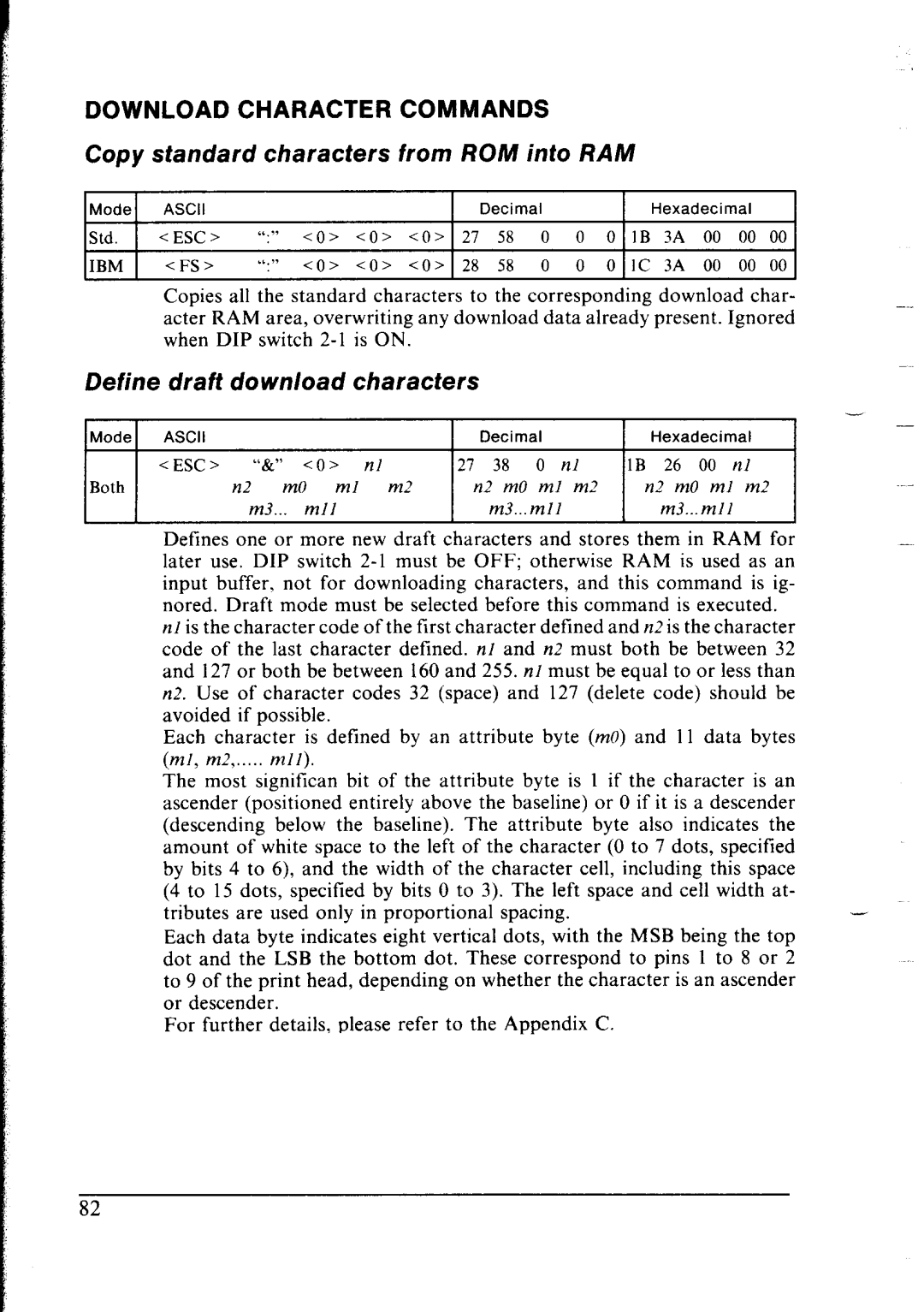
DOWNLOAD | CHARACTER | COMMANDS |
|
|
|
|
|
| |||||
Copy | standard characters | from ROM into RAM |
|
|
| ||||||||
IModel | ASCII |
|
|
| 1 | Decimal |
|
|
| Hexadecimal | 1 | ||
Std. | < ESC > | “:” | <O> | <O> | CO> | 27 | 58 | 0 | 0 | 0 | 1B3A | 00 | 0000 |
IBM | < FS > | <O> | <O> | <O> | 28 | 58 | 0 | 0 | 0 | 1C 3A | 00 | 00 00 | |
Copies all the standard characters to the corresponding download char- acter RAM area, overwriting any download data already present. Ignored when DIP switch
Define draft download characters
Mode 1 ASCII |
|
|
|
| Decimal |
|
| Hexadecimal |
| |
<ESC> | “&” | co> |
| nl | 27 38 | 0 | nl | 1B 26 | 00 | nl |
| n.2 | m0 | ml | m2 | n2 m0 | ml | m2 | n2 m0 | ml | m2 |
| m3... ml1 |
| m3...mll | m3...mll | ||||||
Defines one or more new draft characters and stores them in RAM for later use. DIP switch
input buffer, not for downloading characters, and this command is ig- nored. Draft mode must be selected before this command is executed. nlis the character code of the first character defined and n2is the character code of the last character defined. nl and n2 must both be between 32 and 127 or both be between 160 and 255. nl must be equal to or less than n2. Use of character codes 32 (space) and 127 (delete code) should be avoided if possible.
Each character is defined by an attribute byte (m0) and 11 data bytes
(ml,m2 ,.....mll).
The most signitican bit of the attribute byte is 1 if the character is an
ascender (positioned entirely above the baseline) or 0 if it is a descender
(descending below the baseline). The attribute byte also indicates the amount of white space to the left of the character (0 to 7 dots, specified by bits 4 to 6) and the width of the character cell, including this space (4 to 15 dots, specified by bits 0 to 3). The left space and cell width at-
tributes are used only in proportional spacing.- Each data byte indicates eight vertical dots, with the MSB being the top
dot and the LSB the bottom dot. These correspond to pins 1 to 8 or 2 to 9 of the print head, depending on whether the character is an ascender or descender.
For further details, please refer to the Appendix C.
82
